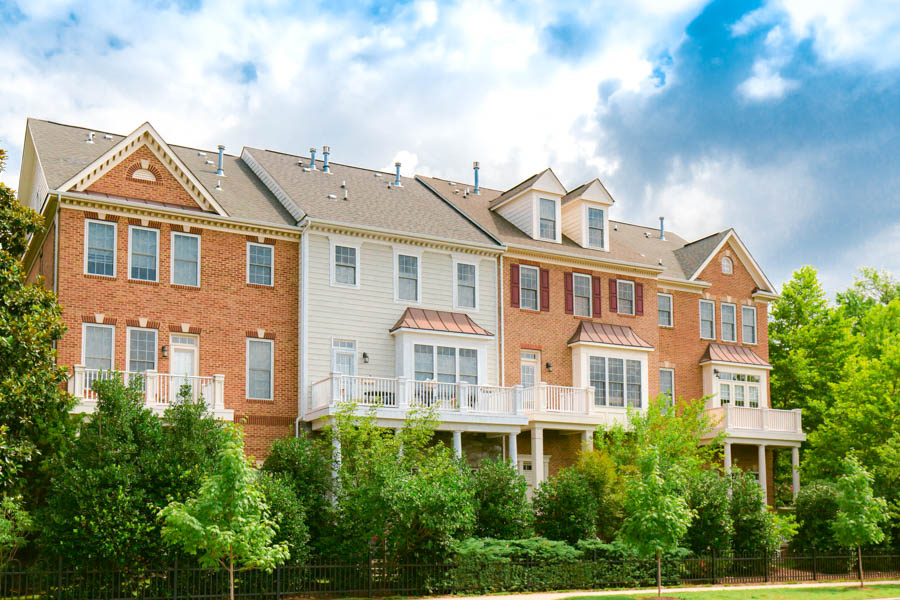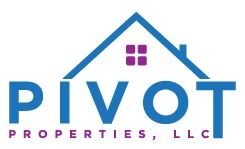No matter what your local housing market is like, there are always strategies for finding cheaper homes. Here are nine of them.

Competition for homes is cooling, but with mortgage rates climbing and home values still 14.1% higher than they were a year ago, it may feel like finding a deal when buying a house is far from achievable. The good news: it’s not.
We spoke with expert buyers agents to learn some of the best housing market hacks for finding lower-priced homes in your market. These strategies tend to apply no matter the pace of your local housing market, but talk to your agent to learn what approach(es) might work best for your own goals and budget. (More on that below.)
Here are nine tips for bypassing bidding wars and raising your chances of finding an affordable home.
1. Look for homes that have been on the market for longer than 30 days
There are deals to be had in houses that have been on the market for a few weeks. Hao Dong of the Hao Dong Team in Bellevue, Washington, says he tells buyers looking for a more affordable house to start with properties that have been on the market for as little as 15 days. “For every 15 days, we can usually negotiate 2% to 3% off the purchase price,” he says. “Once it hits the 30-day mark, sometimes we can negotiate 5% to 10% off the price.”
“For every 15 days, we can usually negotiate 2% to 3% off the purchase price. Once it hits the 30-day mark, sometimes we can negotiate 5% to 10% off the price.”
2. Stay away from turnkey homes and extreme fixer-uppers
You can save money by buying a house that’s not 100% move-in ready and doing a little work yourself. A bit of sweat equity can increase your buying power. But don’t go for a house that needs a gut reno unless you have a separate stash of cash saved for the work.
Home renovations are much more expensive, difficult and time-consuming than they appear on HGTV. With inflation pushing up prices for everything from lumber to labor, you might spend more than you planned to fix up a project house that looked like a bargain.
The sweet spot, budget-wise, is a home that’s between those extremes. Look for a middle ground with a home that needs a little TLC, not a total rehab. Keep an eye out for homes with no structural issues that need a little cosmetic work like removing popcorn ceilings, laying new carpet or repainting too-bright interior or exterior colors.

3. Shop lower-priced alternatives to traditional single-family homes
Sure, a single-family home with a yard is the official American Dream for many. But there are alternative ways to buy a home. Consider buying a condo, co-op or townhome where you share a wall with neighbors. Or think about multi-family homes that allow you to split the homeowning costs with others. You could team up with friends to buy a home and pool your money for the mortgage, down payment and cost of upkeep. Or, you could buy a duplex or triplex, live in one unit and use the rent from the others to help pay the mortgage.
Another option is an accessory dwelling unit, also called an ADU or a mother-in-law suite, that shares a yard with a main house. ADUs have become popular in dense cities with no raw land to build more houses. They’re a good pick for first-time homeowners who don’t need a lot of space or empty nesters. Check out manufactured homes, too, which have come a long way from the days of the ugly doublewide and evolved into affordable homes with design cred.
4. Look for homes with less desirable features
Your dream home may not be a 1960s split-level with a galley kitchen by a cemetery or a 1970s ranch house with a conversation pit near a busy road. But you can get more for your housing dollar if you accept a house that is, well, off-trend and not in the perfect location.
Buying a house that is a bit less desirable can help you get into a neighborhood that might otherwise be out of your price range. Buying the worst house on the best block is a time-tested way to find a place to live without blowing your budget. Be sure you’re OK with the location you pick because you cannot change it. The 24-hour convenience store that will be your neighbor and helped push the house price down $20,000 isn’t going away once you close.
5. Consider putting an offer on a contingent house
In real estate, contingent homes mean the seller has accepted a buyer’s offer, but the sale won’t go through until certain criteria are met. Guess what? Contingent home deals can fall through. If financing falls through, the appraisal comes in low or the home inspection turns up a surprise, the house may go back on the open market. If you have a backup offer in place, it may go to you.
You’ll have to move fast if a contingent deal falls through and the house drops into your lap, but you’ll not have as much competition for it. That’s because most buyers scroll past a listing marked “contingent” because they don’t know they can make an offer. You might be able to swoop in and get a deal.
6. Look at foreclosure auctions
If a homeowner cannot pay their mortgage and defaults on their home loan, the lender can put it on the market as a foreclosure. These houses are listed publicly by city, county or state agencies, depending on local law, and sold at auction where you can pick up a deal. You should hire an agent specializing in foreclosures who can walk you through the buying process.

7. Find an agent who is an expert in the area where you want to live
If you know what area of a city you want to be in, find an agent who specializes in the area. They often know about houses coming up for sale before they hit the MLS. They may be able to connect you directly to a seller because they have an ear to the ground.
“We know just by talking to people and working our connections when someone is going to sell,” says Joy Kim Metalios, managing director and associate broker with the Metalios Team at Houlihan Lawrence in Greenwich, Connecticut. An agent who knows a neighborhood saves you money because, essentially, if you can get to the seller first, it might mean you avoid competition from other buyers that drives up the price of the home.
Metalios says her team sends mailers to homeowners in neighborhoods where she has buyers looking to live. She and her team also knock on doors and ask homeowners if they’re interested in selling. That starts a conversation with the homeowners who aren’t looking to move right away but do want to know what their property is worth. Metalios puts them into a database of homeowners who could be sellers in the near future or if the right situation comes up sooner. “We work a lot of connections, and we let sellers know if they have a high-intent buyer who’s ready to go.”
“We know just by talking to people and working our connections when someone is going to sell.”
Did you know you can connect with a qualified local agent through Zillow to talk through the home-buying process, even if you aren’t looking at a particular listing yet? Start connecting with a local agent here.
8. Understand that the highest offer doesn’t always win
Don’t walk away from a house with other bidders because you figure there’s no way you’ll have the cash to make the highest offer. Sometimes the high offer falls through, and sometimes sellers are looking for something other than top dollar — like flexibility on when they move. “I’ve had sellers work with buyers on the price if the buyer would let them stay in the home while they find another place to live,” says Metalios.
Metalios has done deals where the seller stayed in the house up to 10 months after the deal closed. “A buyer who can be patient with timing is often more desirable to a seller. That gives the seller time to figure out where they will go without pressure. Perhaps they could have gotten more money on the open market but to (the seller), being able to move on their timeline was more important.”

9. Don’t forget to explore government-sponsored loan programs
This tip won’t help you find cheap houses per se, but it may help make your mortgage payment for your home more affordable. There are a range of local and federal government programs aimed at helping first-time homebuyers, public service workers, veterans and low-income earners. The U.S. Department of Housing and Development (HUD) offers a slew of programs to provide affordable housing.
HUD has a list of programs in every state to help homebuyers. Some offer lower interest rates, and others offer financial assistance with down payments or closing costs. For example:
- The U.S. Department of Veterans Affairs (VA) helps veterans secure a competitive interest rate through commercial lenders.
- Check out the Good Neighbor Next Door program, which will match up to 50% of a home’s listing price for teachers, firefighters, EMTs or police officers in certain communities deemed revitalization areas.
- The U.S. Department of Agriculture offers Rural Development home loans for people buying single-family homes in rural areas. Qualifying home buyers can buy or build a home with no money down.
Some cities offer home ownership help ranging from down payment assistance to closing cost assistance. For example, Atlanta offers $10,000 towards the down payment and closing costs for buyers within the city limits who meet income requirements. Seattle offers up to $55,000 in down payment assistance. Visit hud.gov/buying/localbuying for a list of what types of down payment assistance programs and other resources are available at the state level.

